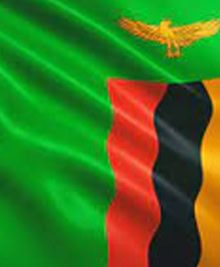Zakaat is Fardh (compulsory) upon every sane adult Muslim (male and female) who possesses net-Zakatable assets (i.e. Zakatable assets over and above one’s basic needs minus liabilities) to the value of Nisab (minimum threshold) for one’s Zakatable (lunar) year.
Zakatable Assets
1. Gold and Silver: All forms of gold and silver, jewellery that contain 50% or more gold and silver content, gold and silver coins (e.g. Kruger coin), gold and silver ornaments, utensils, etc. Zakah is compulsory on these items whether these are in use or not.
2. Cash: Petty cash, float, cash on hand, cash at the bank, foreign currency, saved income from rental/property investments, dividends from investments, lump sum payouts, etc.
3. Stock in Trade: Stock, raw materials, redundant stock, assets purchased with the intention of resale. (The market-rated value of the stock will be considered.)
4. Receivables: Debtors, loans, deposits (municipal, rental), insurance, voluntary pension/provident funds, retirement annuities, etc.
5. Shares/Unit Trusts/Partnership: The net Zakatable assets of the company/fund/ partnership will be considered and Zakah is payable pro rata of one’s investment/ shareholding. However, calculating one’s Zakah of the listed company share or unit trust may be cumbersome. Therefore, one may pay Zakah on the full market value of the investment.
The Zakatable rate for all the above-mentioned assets is 2.5%
6. Livestock: Livestock such as: goats, sheep, cows, bulls and camels for breeding purposes. The local Ulama should be consulted with regard to what amount of Zakah is due on them. Livestock for trade purposes is treated as stock in trade.
Non-Zakatable Assets
1. Metals other than gold and silver such as platinum, titanium, etc.
2. Property, Land and Building
3. Household effects, fixtures and fittings
4. Motor vehicles
5. Personal effects (that are not gold/silver)
6. Diamonds, pearls and other precious or semi
precious stones
N.B. If any of the above assets are purchased for resale then these shall be regarded as stock in trade and calculated as Zakatable assets.
Nisab and Rate of Zakaat
The minimum amount of Zakatable wealth (threshold) which makes one liable for Zakaat is called Nisab.
The Nisab of gold is 87.48 grams and silver is 612.36 grams. Hence, if a person only owns gold which is less than 87.48 grams then Zakah is not compulsory since he is below the threshold of Zakah. Similarly, if a person only owns silver which is less than 612.36 grams then Zakah is not compulsory.
However, if a person owns any Zakatable asset together with gold or silver then the applicable Nisab would be the value of 612.36 grams of silver.
The equivalent Rand value of this fluctuates daily. This may be obtained from your local Ulama body.
Debts and Liabilities
The classical juristic texts state that all debts are regarded as deductible liabilities of Zakaat. However, some contemporary jurists differentiate between the types of debts, e.g. debts which are for commercial expansion or investment purposes and personal debts that are basic, whilst others do so based on the term of repayments of short term and long term debts.
Darul Ihsan is of the view that in long term loans, only the next twelve months instalments due will be considered a liability and deductible.
The Zakatable Year
1. The Zakaat year is based on the Hijri (lunar) calendar and not on the Gregorian (solar) calendar.
2. The very first day a person possesses wealth equivalent to the value of Nisab heralds the beginning of his/her Zakatable year.
3. Should Nisab enter one’s possession and remain with oneself for the entire lunar year, then one will be liable to pay Zakaat, irrespective of the fluctuations during the year provided the net-value had not reached zero.
Hence, at the year-end Zakaat is paid on the entire value of the net Zakatable assets in one’s possession – though some assets may not be literally in one’s possession for the entire year including all assets and amounts acquired during the year.
If at any point during the year, the net-value of Zakatable assets reached zero or a person had more debts than Zakatable assets, the Zakatable year will change. The new Zakah year commences upon regaining the equivalent of Nisab.
Decrease in Wealth
If Zakatable assets are destroyed (without one’s own doing), Zakaat will only be paid on the remainder if a person’s wealth gets destroyed after the year-end. However, if one destroys the wealth deliberately or uses up the wealth, Zakaat will be payable in full.
Discharging of Zakaat
1. It is necessary for the validity of discharging Zakaat to have the intention of discharging Zakah.
2. This can be done in several ways: – intention is made when handing over Zakaat to the recipient – or intention is made at the time of separating and setting aside money for discharging Zakaat, – or the intention can be made after giving the wealth away, whilst the Zakaat is still in the possession of the recipient, not after that.
3. The condition for the validity of the discharge of Zakaat is “Tamleek” – where ownership and possession of the wealth is transferred to the deserving recipient. Hence, Zakaat cannot be given or used for the construction of a Masjid, Islamic institute, etc. nor can Zakaat funds be used to prepare meals for the poor without giving them unconditional possession over the food.
4. Zakaat can be paid in cash or kind. Hence, one can discharge goods and consumable items as Zakaat.
5. Authority can be delegated to another person or an organisation to distribute Zakaat on one’s behalf. However, if this representative does not distribute the Zakaat, or distributes it incorrectly then one’s Zakaat will not be discharged, and will still remain an obligation until it is fulfilled.
6. Zakaat may be discharged gratuitously by another person provided this is done with the consent of the one who is obligated to do so. Hence, if the husband wants to discharge the Zakaat of the wife gratuitously then he may do so with her consent.
Similarly another person may be requested to pay a certain amount as Zakaat on one’s behalf. If this is undertaken then the amount given will then be a debt upon one and will have to be repaid.
7. Zakaat can be paid in advance. One must, however, calculate Zakaat at the end of the Zakaat year to determine whether there was any shortfall or not, and if so make good the outstanding amount.
The rules and laws of Zakaat are detailed. This brochure merely serves as a brief overview of the basic laws. Please refer to your local Alim/Mufti for further guidance.
And Allah Ta’ala Knows Best
All Information provided on this page came from Jamiatul Ulama KZN





















